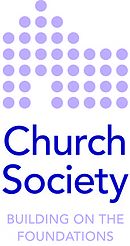Included in the papers for the next General Synod is a lengthy document outlining the proposed process by which the House of Bishops will move ahead with the Prayers of Love and Faith. They have divided this into three sections:
1. Covenanted Friendships
In the initial draft of the PLF, there were various prayers proposed for covenanted friendships, without any explanation of what these friendships were, why they needed formal, public, covenantal promises, and why this was included. These have now been removed from the PLF. Guidance and prayers for covenanted friendships will be issued separately, commended by the bishops without any synodical approval, on the grounds that this does not represent or indicate any change in doctrine.
2. Commended Prayers
Bishops are free to commend prayers for use at any time, on the understanding that these do not represent a change in doctrine on any essential matter. In February, General Synod voted to support the bishops in commending the PLF, provided they were not indicative of any change in doctrine. The paper argues that the bishops only considered the former test, not the latter, and decided that the prayers did not indicate any essential change in doctrine and will, therefore, be commended along with an initial part of the pastoral guidance for their use. This guidance will not address the question of clergy in same sex relationships, nor the issue of provision for those who cannot use the prayers in good conscience. It is expected that the commendation of the prayers will happen shortly after November’s General Synod.
3. Services of blessing
The legal and theological advice received by the bishops has persuaded them that they cannot simply introduce services of same-sex blessing without due synodical process. In 2025, therefore, a motion will be brought to General Synod (following some consultation with dioceses), introducing new liturgy under Canon B2. This recognises that it is liturgical and theological change and would require 2/3 majority in each of the three houses (Bishops, Clergy, Laity) in order to pass. As things stand, it seems unlikely that such a majority would be achieved. This would leave us in the chaotic situation where prayers that were unauthorised and illegal had previously been commended by the bishops and widely used.
The arguments in the paper are lengthy, but unpersuasive. The doctrine of the Church of England is the doctrine of Scripture, to which our other formularies bear witness (Canon A5). If we have misunderstood or articulated the doctrine of Scripture inaccurately, then the formularies should indeed be changed. But in order to make such a change, the case must be made from Scripture. The bishops continue to fail in making this case. If we were to change the church’s doctrine away from that which is taught in the Bible, we would need to change Canon A5. As yet, no one dares to try that.
At General Synod, there will be an informal session on the first day, and a formal debate on the second and third days. The motion to be debated simply recognises that the church is not ‘of one mind’ on the issue, that there is uncertainty and pain, but that the House of Bishops has made progress in implementing February’s decision, and will continue to do so.



